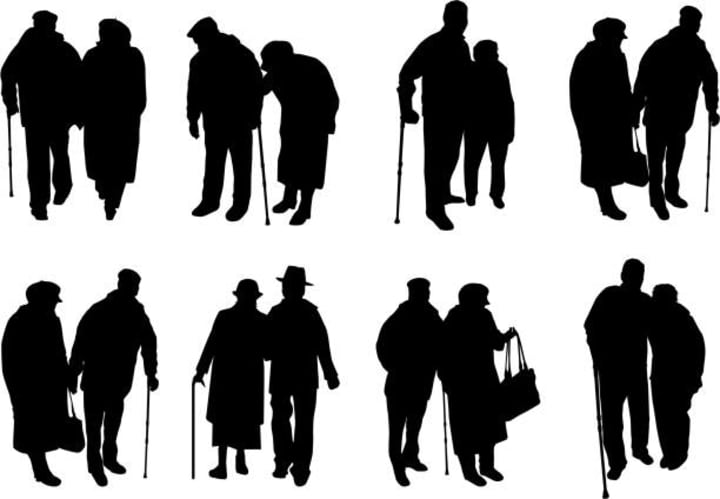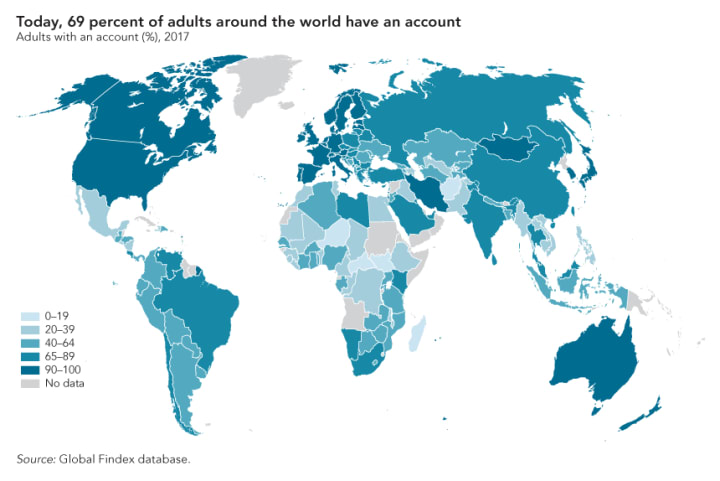The Affect of Ageism on Society
An article reviewing "Supporting the old but neglecting the young? The Two Faces of Ageism" by Bratt, C., Abrams, D., & Swift, H. J.


The main topic of this paper is ageism and the affect it has on individuals in society. According to the World Health Organization, ageism “ refers to the stereotypes (how we think), prejudice (how we feel) and discrimination (how we act) towards others or oneself based on age” (World Health Organization. (n.d.). Ageing: Ageism) The problems that come with ageism are noticeable early in life: "By the age of four years old, people “become aware of their culture’s age stereotypes.” (World Health Organization. (n.d.). Ageing: Ageism) This data, points to just how important it is to study ageism. If even a kindergarten-age child recognizes the evidence of the oppression that can be caused to people in different age groups, that signifies just how pertinent the issue is to all societal groups.

All age groups suffer from ageism: “ They also draw on culture’s age stereotypes to perceive and understand themselves, which can result in self-directed ageism at any age” (World Health Organization. (n.d.). Ageing: Ageism) This sentence is important because it describes a phenomenon that is not mentioned at all in the Bratt paper which is discussed through the rest of the essay: the personal experience that results from cultural stereotyping concerning different age groups. Ageism being self-directed is a strange but telling statement. In general, ageism is discussed as a general cultural phenomenon, not as a psychological problem. Society is often to blame for widespread instances of psychological complexes developed by an individual’s brain, and ageism can cause a person to target their own psyche simply based on their age. This is a serious problem because when a person fails to believe in themselves simply because of their age, either too young or too old or too middle aged, it prevents them from functioning in a manner that allows them to focus on their occupation or involvement in society to the best of their ability. This analysis is also is reflected in another statement by the World Health Organization: “ Ageism also increases risky health behaviors, such as eating an unhealthy diet, drinking excessively or smoking, and reduces our quality of life” (World Health Organization. (n.d.). Ageing: Ageism).

Ageism is not often discussed by people in most conversations about prejudice, despite the fact that it is quite commonly the cause of discrimination and injustice. The Bratt paper supports this comment; “ Ageism is the most prevalent form of prejudice and is experienced by both older and younger people” (Bratt 2020). Ageism is not harmful for only one group of people, but affects people across the spectrum of ages. Most developed countries have a system for caring for the elderly, but in some of those countries younger people have a harder time: “Using multilevel structural equation modeling, we test the hypothesis that older people are less likely, and younger people more likely, to suffer age discrimination if they live in a country with stronger structural support for older people” (Bratt 2020). Supposedly, younger people suffer more age discrimination if they live in a country with stronger structural support for older people. In countries where older people receive good pensions and retirement income, younger people tend to protest a lot about their rights as workers. This is not because they are particularly discriminated against, however, but in fact a result of their access to free speech, which no longer exists in the United States of America. In foreign countries the younger generations are educated in manner that encourages them to exercise freedom of speech, they are not targeting laws protecting the older generations, but are usually just asking the government to lower the required retirement age by one or two years.

Here is an example of an assertion that the authors of this paper may have ulterior motives alongside its publication, such as misleading the public to believe that old people are conspiring against systems of power. Unfortunately, for younger and middle aged people, the oldest people in society tend to have the most sway, and that is how it has been since the time of hunter-gatherers. Before civilization, the oldest people were responsible for passing down the folklore and customs of the tribe, and later on, with the increasing complexity of social groups and population density, this pattern continued to hold strong. “Specifically, when people claim to be motivated to be unprejudiced based on age, they may be implicitly be thinking only of older people, who are perceived to pose little threat to the status or power of other groups” (Bratt 2020). This sentence is controversial because it implies that the older generations are plotting against the younger generations, which could increase the paranoia and ageism that younger and middle aged people direct towards older people. This demonstrates that the authors of this paper are in fact, themselves, conspiring against the older members of society.

Ageism is caused by poor upbringing and a lack of family ties. When youth are not raised by or around their older relatives, or taught enough sociology in school, they tend to be ignorant of the fact that the oldest people in society not only have a lot of power because they have been alive for longer and have contributed more to society. Also, the elderly tend to be more intelligent, so they communicate better with officials.

How does ageism affect both older people and younger people negatively? Younger people struggle to get jobs when there is not a system in place requiring late-middle aged people to retire. Older people struggle to stay physically able and also many of them cannot work and are retired, so if they don’t have pensions to rely on they might not have an income. In summary, the middle-aged people are most likely to be consistently employed. According to North and Fiske, “ Industrialization and automation in modern-sized societies go along with falling birth rates and increased longevity, resulting in a higher proportion of older people and simultaneously a reduced demand for older workers’ skills” (Bratt 2020).

Could the fact that the AgeWatch Index is using data from the World Bank a reason to distrust their conclusions, considering how the World Bank has singlehandedly destroyed the governments and economies of so many countries? The World Bank has offered solutions to many disadvantaged countries and subsequently destroyed all existing infrastructure in those countries. Does the change in social values and increasing tolerance brought on by modernization also have benefit younger people? According to Bratt, it does: “Indeed, in research that asked North American participants to select which of two (equally qualified) candidates who could most maximize their organization’s performance ( Abrams, Swift, & Drury, 2016), clear preference was shown for applicants whose profiles included positive stereotypes of younger age” (Bratt 2020). Most of the conclusions that the authors, Christopher Bratt, Dominic Abrams, and Hannah J. Swift came to by the end of the paper are based on data provided by the World Bank, and considering the history of the World Bank around the planet, a lot of these conclusions should be called in question.
Bibliography:
Bratt, C., Abrams, D., & Swift, H. J. (2020). Supporting the old but neglecting the young? The Two Faces of Ageism. Developmental Psychology, 56(5), 1029–1039. https://doi.org/10.1037/dev0000903
World Health Organization. (n.d.). Ageing: Ageism. World Health Organization. Retrieved October 25, 2021, from https://www.who.int/news-room/q-a-detail/ageing-ageism.
About the Creator
Sabine Lucile Scott
Hi! I am a twenty-nine year old college student at San Francisco State University majoring in Mathematics for Advanced Studies. I plan to continue onto graduate school in Mathematics once I am finished the plethora of courses which remain.






Comments
There are no comments for this story
Be the first to respond and start the conversation.